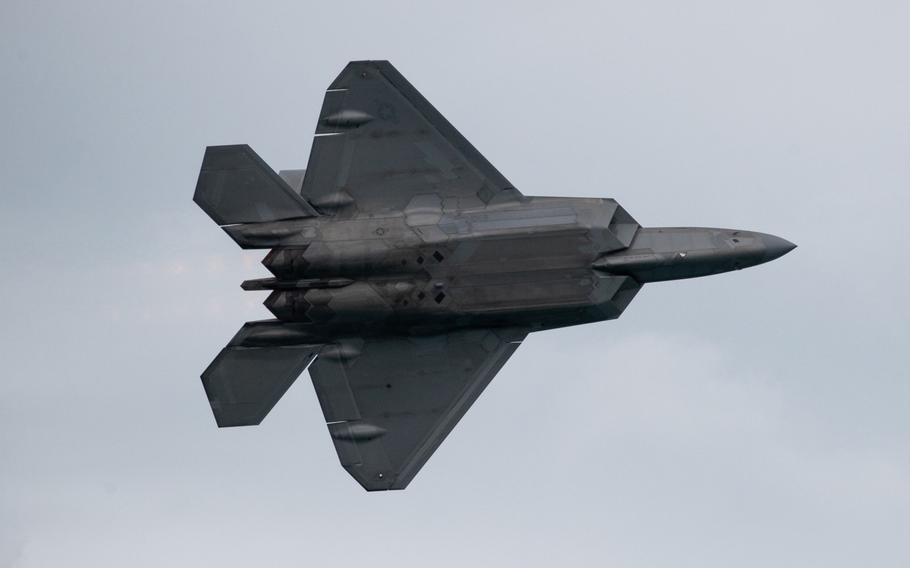
The U.S. Air Force is starting a multibillion-dollar contest to replace the F-22 fighter jet. (SeongJoon Cho/Bloomberg)
The Air Force formally opened a multibillion-dollar contest to replace the F-22 Raptor fighter jet that’s likely to draw competing bids by U.S. aerospace giants Lockheed Martin, Boeing and Northrop Grumman.
The service issued a “Request for Proposals” on Thursday for the full-scale development phase of the Next Generation Air Dominance crewed fighter, or NGAD, that’s intended to fly in tandem with drones that are being developed in a separate program. The service intends to award a development contract in 2024 with the new fighter entering service in the 2030s.
“This solicitation release formally begins the source selection process, providing industry with the requirements the Air Force expects for NGAD, as the replacement of the F-22,” the service said in a statement as it gave contractors the classified request. “The NGAD Platform represents a generational leap in technology over the F-22,” Secretary of the Air Force Frank Kendall said.
The Air Force is asking Congress in its fiscal 2024 budget request to retire 32 of the older, so-called Block 20 F-22s that are no longer deemed combat-capable and shift the money it takes to maintain them into the new fighter program.
Little is known about the Air Force’s classified program, but the service plans to spend $16 billion on its research and development through 2028. Like the F-22, it’s intended to be an air-to-air fighter. The better-known F-35 has an air-to-air role is but is also seen as a sensor in sky to collect and widely distribute air and ground target information.
Kendall has said the Air Force chose to defer some F-35 procurement to expedite NGAD development. Kendall has also said NGAD will cost “several hundreds of millions” per aircraft. By comparison, the F-22 had an average per unit cost of $191.6 million, according to the Congressional Research Service.
Lockheed Martin’s F-22 had a rocky development and made its debut in warfare only in February 2015, more than nine years after it was deemed combat-ready. The F-22’s production was curtailed in April 2009 at 187 planes instead of a potential 243 by then-Defense Secretary Robert Gates, who questioned its expense and relevance.
While the F-22 boasts stealth capabilities and a supersonic cruise speed, the plane was developed before the military’s all-in bet on drones as an extension of U.S. power. Air-to-air capabilities also are in the forefront of U.S. thinking again in an era of sharpening tensions with potential adversaries China and Russia, after decades of lower-level conflicts with irregular forces.